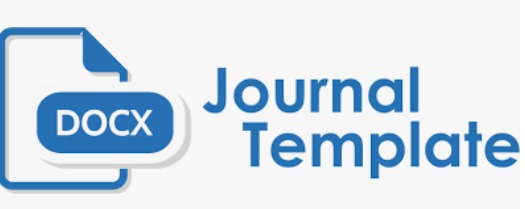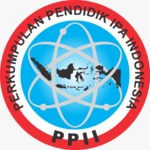Eksplorasi Dimensi Efikasi Diri Guru Fisika di Kalimantan Barat
DOI:
https://doi.org/10.29408/kpj.v7i3.23730Keywords:
teacher self efficacy, physics, west kalimantanAbstract
Physics teachers need to pay more attention to each student's unique way of thinking, strive to recognize and correct misunderstandings, and apply cognitive learning methods such as assimilation and accommodation. The use of cognitive dissonance can be used as a tool to change students' way of thinking. Additionally, it is important to simplify experiments and provide practical exercises that can deepen students' understanding. Teachers must also be able to relate lesson material to real life and understand the role of emotions in the teaching and learning process. Therefore, it is necessary to have teacher self-confidence through self-efficacy. This study aims to provide a comprehensive understanding of the condition of educators' self-efficacy in West Kalimantan and its impact on learning. This research is a descriptive research. The population of this research is all physics teachers in West Kalimantan. The sample was selected using probability sampling technique. The number of samples in this study were 100 physics teachers from 13 cities/districts in West Kalimantan. Data collection technique is indirect communication. Data analysis used descriptive statistics, followed by a description of the physics teacher's level of self-efficacy. Based on the research results it was concluded that the average self-efficacy level of physics teachers in West Kalimantan was quite high. The factors measured, namely the efficacy in learning strategies, classroom management, and student involvement all show a good level of self-efficacy. Physics teachers in West Kalimantan demonstrated high efficacy in developing learning strategies and managing classrooms, and had sufficient confidence in engaging students in the learning process.References
Abdelrahman, R. M. (2020). Metacognitive awareness and academic motivation and their impact on academic achievement of Ajman University students. Heliyon, 6(9), e04192. https://doi.org/10.1016/j.heliyon.2020.e04192
Aloe, A. M., Amo, L. C., & Shanahan, M. E. (2014). Classroom management self-efficacy and burnout: A multivariate meta-analysis. Educational Psychology Review, 26(1), 101–126. https://doi.org/10.1007/s10648-013-9244-0
Bandura, A. (1977). Self-efficacy: Toward a unifying theory of behavioral change. Psychological Review, 84(2), 191–215. https://doi.org/10.1037/0033-295X.84.2.191
Bruggink, M., Goei, S. L., & Koot, H. M. (2016). Teachers’ capacities to meet students’ additional support needs in mainstream primary education. Teachers and Teaching, 22(4), 448–460. https://doi.org/10.1080/13540602.2015.1082727
Caprara, G. V., Barbaranelli, C., Steca, P., & Malone, P. S. (2006). Teachers’ self-efficacy beliefs as determinants of job satisfaction and students’ academic achievement: A study at the school level. Journal of School Psychology, 44(6), 473–490. https://doi.org/10.1016/j.jsp.2006.09.001
Dixon, F. A., Yssel, N., McConnell, J. M., & Hardin, T. (2014). Differentiated instruction, professional development, and teacher efficacy. Journal for the Education of the Gifted, 37(2), 111–127. https://doi.org/10.1177/0162353214529042
Eryılmaz, H. (2004). The effect of peer instruction on high school students’ achievement and attitudes toward physics [Graduate School of Natural and Applied Sciences]. https://open.metu.edu.tr/handle/11511/14040
Gencer, A. S., & Cakiroglu, J. (2007). Turkish preservice science teachers’ efficacy beliefs regarding science teaching and their beliefs about classroom management. Teaching and Teacher Education, 23(5), 664–675. https://doi.org/10.1016/j.tate.2005.09.013
Gibson, S., & Dembo, M. H. (1984). Teacher efficacy: A construct validation. Journal of Educational Psychology, 76(4), 569–582. https://doi.org/10.1037/0022-0663.76.4.569
González-Nucamendi, A., Noguez, J., Neri, L., Robledo-Rella, V., García-Castelán, R., & Escobar-Castillejos, D. (2021). The prediction of academic performance using engineering student’s profiles. Computers & Electrical Engineering, 93, 107288. https://doi.org/10.1016/j.compeleceng.2021.107288
Henson, R. K., Kogan, L. R., & Vacha-Haase, T. (2001). A reliability generalization study of the teacher efficacy scale and related instruments. Educational and Psychological Measurement, 61(3), 404–420. https://doi.org/10.1177/00131640121971284
Huang, L., Zhang, T., & Huang, Y. (2020). Effects of school organizational conditions on teacher professional learning in China: The mediating role of teacher self-efficacy. Studies in Educational Evaluation, 66, 100893. https://doi.org/10.1016/j.stueduc.2020.100893
Kapucu, S. (2017). Predicting physics achievement: attitude towards physics, self-efficacy of learning physics, and mathematics achievement. Asia-Pacific Forum on Science Learning and Teaching, 18(1).
Keller, M. M., Neumann, K., & Fischer, H. E. (2017). The impact of physics teachers’ pedagogical content knowledge and motivation on students’ achievement and interest. Journal of Research in Science Teaching, 54(5), 586–614. https://doi.org/10.1002/tea.21378
Klassen, R. M., & Tze, V. M. C. (2014). Teachers’ self-efficacy, personality, and teaching effectiveness: A meta-analysis. Educational Research Review, 12, 59–76. https://doi.org/10.1016/j.edurev.2014.06.001
Lazarides, R., Buchholz, J., & Rubach, C. (2018). Teacher enthusiasm and self-efficacy, student-perceived mastery goal orientation, and student motivation in mathematics classrooms. Teaching and Teacher Education, 69, 1–10. https://doi.org/10.1016/j.tate.2017.08.017
Nissen, J. M. (2019). Gender differences in self-efficacy states in high school physics. Physical Review Physics Education Research, 15(1), 013102. https://doi.org/10.1103/PhysRevPhysEducRes.15.013102
Reschly, A. L., & Christenson, S. L. (2019). Chapter 5 - The intersection of student engagement and families: A critical connection for achievement and life outcomes. In J. A. Fredricks, A. L. Reschly, & S. L. Christenson (Eds.), Handbook of Student Engagement Interventions (pp. 57–71). Academic Press. https://doi.org/10.1016/B978-0-12-813413-9.00005-X
Ross, J. A. (1992). Teacher efficacy and the effects of coaching on student achievement. Canadian Journal of Education, 17(1), 51–65. https://doi.org/10.2307/1495395
Schleicher, A. (2016). Teaching excellence through professional learning and policy reform: Lessons from around the World. Organisation for Economic Co-operation and Development. https://www.oecd-ilibrary.org/education/teaching-excellence-through-professional-learning-and-policy-reform_9789264252059-en
Singh, C. (2014). What can we learn from PER: Physics Education Research? The Physics Teacher, 52(9), 568–569. https://doi.org/10.1119/1.4902211
Skaalvik, E., & Skaalvik, S. (2007). Dimensions of teacher self-efficacy and relations with strain factors, perceived collective teacher efficacy, and teacher burnout. Journal of Educational Psychology, 99, 611–625. https://doi.org/10.1037/0022-0663.99.3.611
Slater, E. V., & Main, S. (2020). A measure of classroom management: Validation of a pre-service teacher self-efficacy scale. Journal of Education for Teaching, 46(5), 616–630. https://doi.org/10.1080/02607476.2020.1770579
Summers, J. J., Davis, H. A., & Hoy, A. W. (2017). The effects of teachers’ efficacy beliefs on students’ perceptions of teacher relationship quality. Learning and Individual Differences, 53, 17–25. https://doi.org/10.1016/j.lindif.2016.10.004
Tschannen-Moran, M., & Hoy, A. W. (2001). Teacher efficacy: Capturing an elusive construct. Teaching and Teacher Education, 17(7), 783–805. https://doi.org/10.1016/S0742-051X(01)00036-1
Tschannen-Moran, M., & Hoy, A. W. (2007). The differential antecedents of self-efficacy beliefs of novice and experienced teachers. Teaching and Teacher Education, 23(6), 944–956. https://doi.org/10.1016/j.tate.2006.05.003
Wan, S. (2015). Differentiated instruction: Hong Kong prospective teachers’ teaching efficacy and beliefs. Teachers and Teaching Theory and Practice, 22(2), 148–176. https://doi.org/10.1080/13540602.2015.1055435
Wang, J., Stebbins, A., & Ferdig, R. E. (2022). Examining the effects of students’ self-efficacy and prior knowledge on learning and visual behavior in a physics game. Computers & Education, 178, 104405. https://doi.org/10.1016/j.compedu.2021.104405
Woolfolk, A. E., Rosoff, B., & Hoy, W. K. (1990). Teachers’ sense of efficacy and their beliefs about managing students. Teaching and Teacher Education, 6(2), 137–148. https://doi.org/10.1016/0742-051X(90)90031-Y









